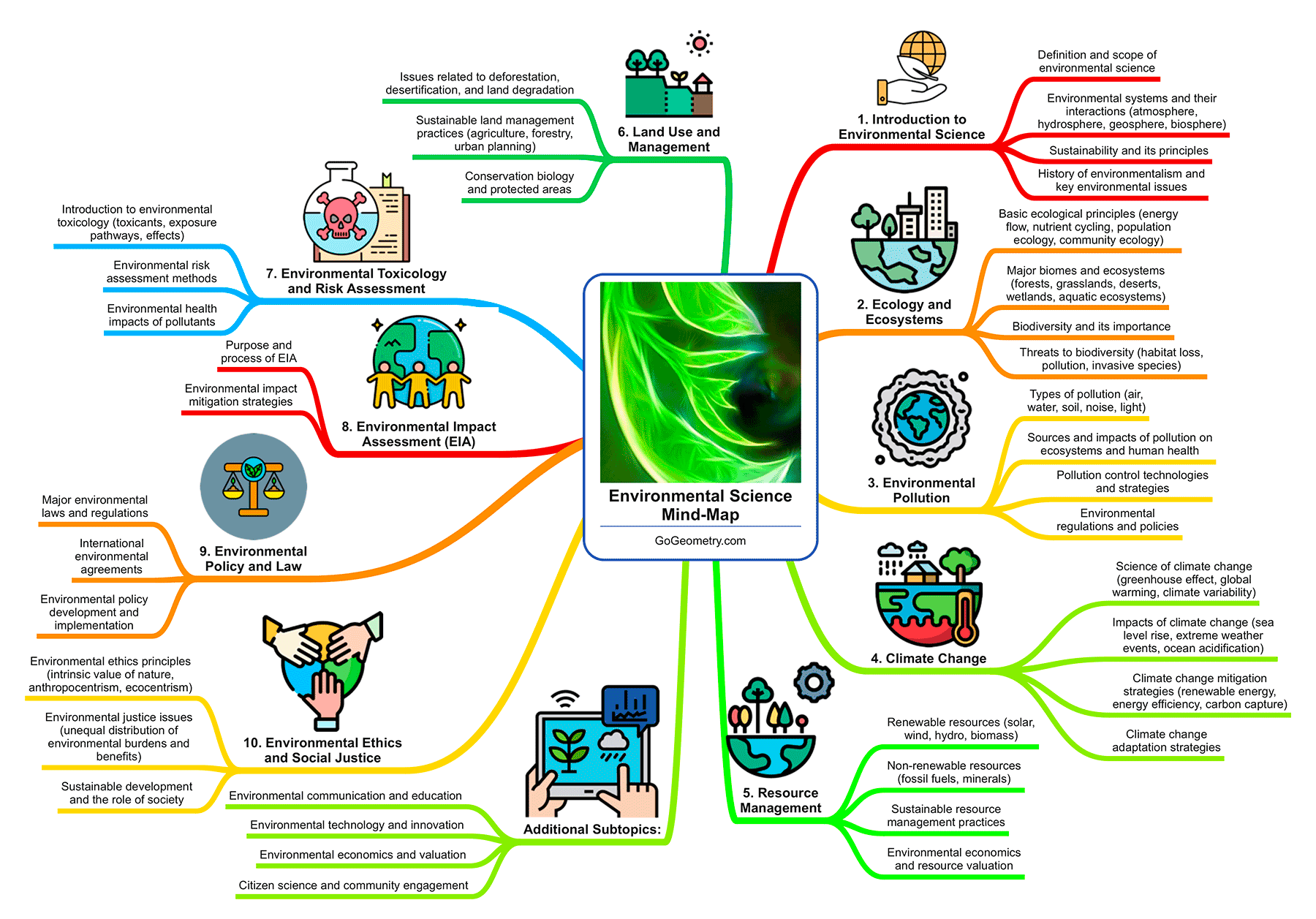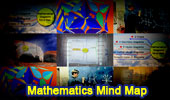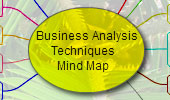Mind Map of Environmental Science Course: Topics and Subtopics

Environmental Science Topics and Subtopics
| Topic | Subtopic |
|---|---|
| Introduction to Environmental Science | Definition and scope of environmental science |
| Environmental systems and their interactions (atmosphere, hydrosphere, geosphere, biosphere) | |
| Sustainability and its principles | |
| History of environmentalism and key environmental issues | |
| Ecology and Ecosystems | Basic ecological principles (energy flow, nutrient cycling, population ecology, community ecology) |
| Major biomes and ecosystems (forests, grasslands, deserts, wetlands, aquatic ecosystems) | |
| Biodiversity and its importance | |
| Threats to biodiversity (habitat loss, pollution, invasive species) | |
| Environmental Pollution | Types of pollution (air, water, soil, noise, light) |
| Sources and impacts of pollution on ecosystems and human health | |
| Pollution control technologies and strategies | |
| Environmental regulations and policies | |
| Climate Change | Science of climate change (greenhouse effect, global warming, climate variability) |
| Impacts of climate change (sea level rise, extreme weather events, ocean acidification) | |
| Climate change mitigation strategies (renewable energy, energy efficiency, carbon capture) | |
| Climate change adaptation strategies | |
| Resource Management | Renewable resources (solar, wind, hydro, biomass) |
| Non-renewable resources (fossil fuels, minerals) | |
| Sustainable resource management practices | |
| Environmental economics and resource valuation | |
| Land Use and Management | Issues related to deforestation, desertification, and land degradation |
| Sustainable land management practices (agriculture, forestry, urban planning) | |
| Conservation biology and protected areas | |
| Environmental Toxicology and Risk Assessment | Introduction to environmental toxicology (toxicants, exposure pathways, effects) |
| Environmental risk assessment methods | |
| Environmental health impacts of pollutants | |
| Environmental Impact Assessment (EIA) | Purpose and process of EIA |
| Environmental impact mitigation strategies | |
| Environmental Policy and Law | Major environmental laws and regulations |
| International environmental agreements | |
| Environmental policy development and implementation | |
| Environmental Ethics and Social Justice | Environmental ethics principles (intrinsic value of nature, anthropocentrism, ecocentrism) |
| Environmental justice issues (unequal distribution of environmental burdens and benefits) | |
| Sustainable development and the role of society | |
| Additional Subtopics | Environmental communication and education |
| Environmental technology and innovation | |
| Environmental economics and valuation | |
| Citizen science and community engagement |
This mind map was created with the help of Google Gemini and ChatGPT3.5 on April 29, 2024.
Graphic Organizers
Graphic organizers are visual tools used to represent information, concepts or ideas, while mind maps are a type of hierarchical diagram that organizes information visually, typically in a branching format, using keywords and images. Both graphic organizers and mind maps are useful for organizing and structuring ideas, facilitating learning and retention, and enhancing creativity and problem-solving skills.


